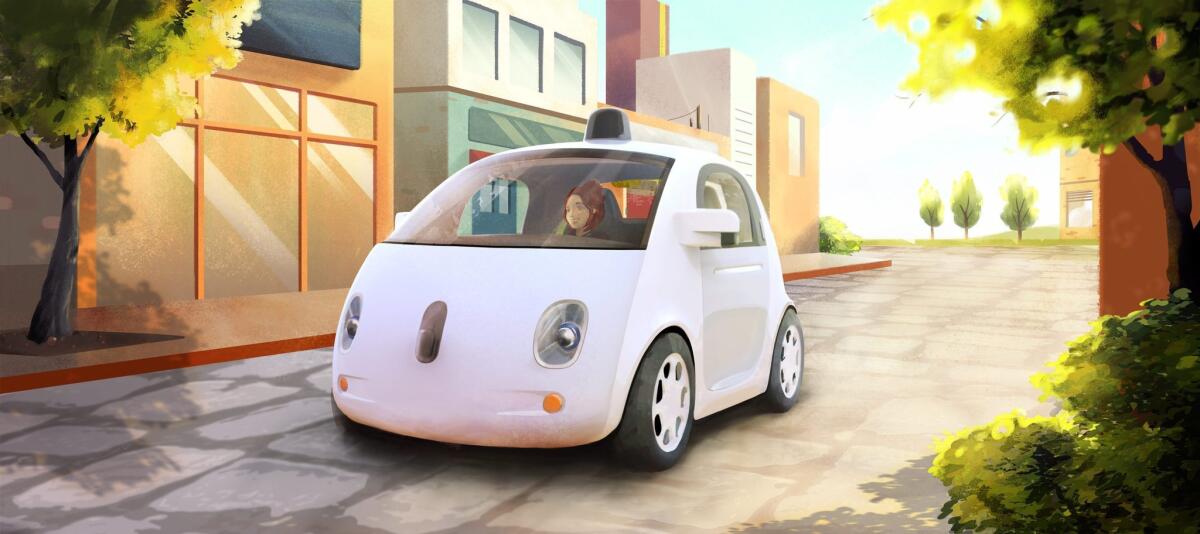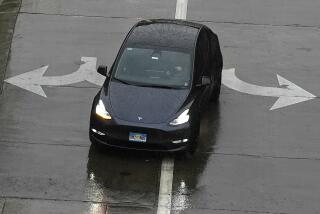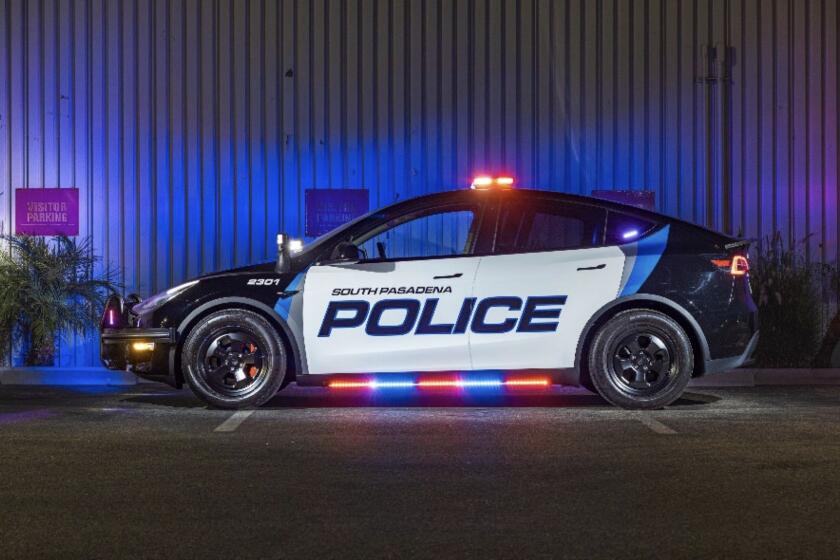Is Apple charging into electric car market?

Apple is the latest technology company aiming to get into the car business.
The Cupertino, Calif., technology giant has created a team of employees to explore an Apple-branded electric car, the Wall Street Journal reported late Friday.
Apple would join archrival Google and upstart automotive company Tesla Motors in launching development of a high-tech, battery-powered vehicle.
Like Google, smartphone and computer company Apple has lots of cash to take on the likes of car behemoths General Motors Co., Ford Motor Co. and Toyota Motor Corp.
Apple ended 2014 with $178 billion in cash and marketable securities.
But that doesn’t necessarily mean Apple will dump billions into the enormously complicated and expensive auto manufacturing business.
It could supply software to increasingly automated and computerized vehicles made by others, as analysts predict Google will seek to do. Or, as Apple has with other products, it could develop a design and outsource the manufacturing to contractors.
The Journal, citing anonymous sources, reported that Apple Chief Executive Tim Cook approved an automotive project a year ago and placed it under the care of Apple VP Steve Zadesky, a former Ford Motor Co. engineer.
Cook authorized Zadesky to create a team of 1,000 workers, according to the Journal’s unnamed sources. Apple hired Johann Jungwirth, a former Mercedes-Benz executive, last September, the Journal reported.
Apple executives have met with auto manufacturers in Austria, according to the Journal, including with Magna Steyr, based in Graz and a subsidiary of Canadian Magna International.
Magna Steyr has built or helped develop vehicles for Mercedes and BMW, and introduced a plug-in electric vehicle of its own design at the 2009 Geneva Motor Show.
Apple representatives did not immediately respond to requests for comment Friday.
The company has already made automotive headway with its CarPlay, an in-dash feature that uses Apple’s Siri voice control and iPhones to enable drivers to make calls, read and send text messages, use Apple maps and listen to music.
Apple calls it “the best iPhone experience on four wheels,” and says the feature will be offered by most of the world’s auto manufacturers, among them Ford, Honda, Toyota, BMW, Mercedes-Benz, Hyundai and Volkswagen.
Google has been working on its Auto Android, a similar product.
Some analysts can’t see Apple building cars.
“It doesn’t sound plausible to me,” said Egil Juliussen, automotive technology analyst at IHS Automotive. “The profit margin in the auto industry is not great. A 10% margin is considered very good. But technology companies expect 20%.”
Still, the automotive industry is being increasingly pulled to California and Silicon Valley, said Thilo Koslowski, vice president and automotive practice leader at Gartner Inc.
Most major automakers have opened research offices in the technology Mecca. Tesla Motors -- the most important new American car company in almost a century -- is based in Palo Alto and builds cars at a factory in nearby Fremont.
Ride-hailing company Uber announced last week that it would open a robotics research center in partnership with Carnegie Mellon University in Pittsburgh that “will focus on the development of key long-term technologies that advance Uber’s mission of bringing safe, reliable transportation to everyone, everywhere.”
That fueled speculation the San Francisco company wants to invest in self-driving cars.
Google announced last May that it would test about 200 self-driving two-seat cars that run on electric power -- most with no steering wheel or pedals.
The cars, resembling gumdrops, aren’t necessarily a signal that Google wants to become an automaker. The company hopes to develop self-driving software that will “improve road safety and help people who can’t drive,” it wrote on its blog.
Analysts have predicted that the company will seek to profit from selling the software to automakers, rather than taking on an auto manufacturing operation.
There’s no doubt Apple could produce a car if it chose to, Koslowski said.
“The barriers to building an electric vehicle are much lower than they use to be,” he said. “You can buy a lot of the components these days, almost off the shelf. It is much easier to do than starting from scratch and developing an internal combustion vehicle.”
But he agreed that it would be difficult for Apple to wring the same profits from cars as it has enjoyed from computers, phones and tablets.
“They might decide to just license complete systems, such as a battery-based power train, to existing auto manufacturers,” Koslowski said. “They could co-brand. They could collaborate on production. They have a lot of options.”
Analysts have predicted that the rapid application of computing power to transportation will open the industry to new entrants.
It would be surprising not to see tech giants like Google or Amazon -- or ride-hailing upstarts such as Uber -- investing in the automotive industry, wrote Adam Jonas, an auto analyst with Morgan Stanley Research, in a note to investors last year.
This is creating competition for the old-line automakers from places they never expected, Koslowski said.
“This is much deeper and broader than putting an entertainment system in the car,” he said.
Some of the automakers won’t be up to the test, Koslowski said.
“It is no longer just about mechanical engineering,” Koslowski said. “It is about understanding bits and bytes.”
jerry.hirsch@latimes.com
charles.fleming@latimes.com
Times staff writer Andrea Chang contributed to this report.








